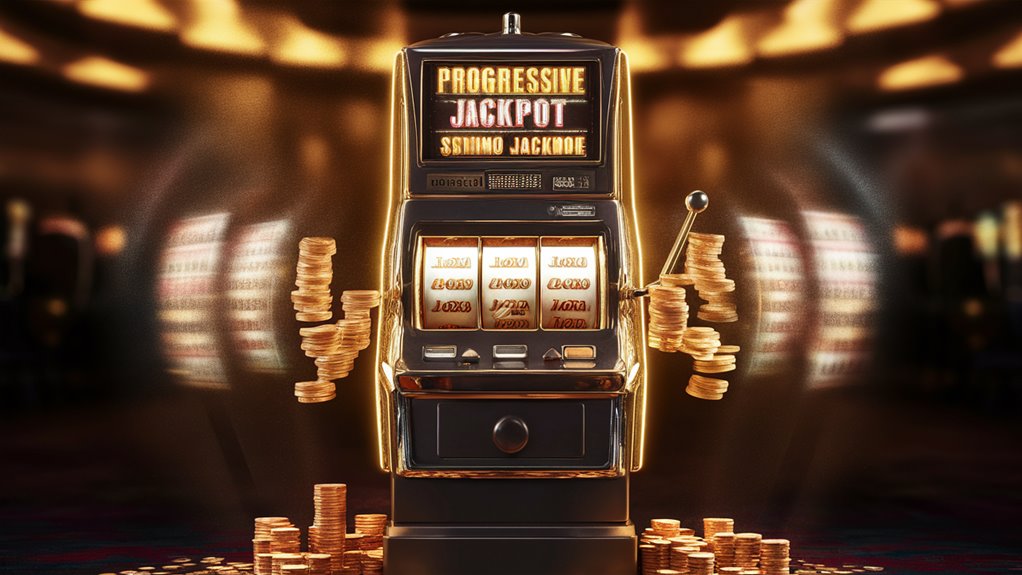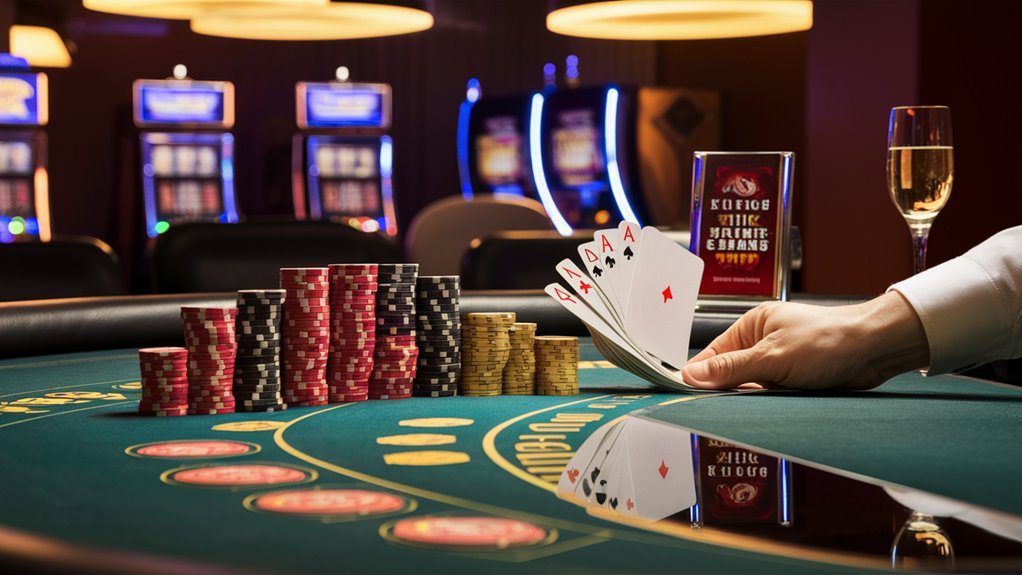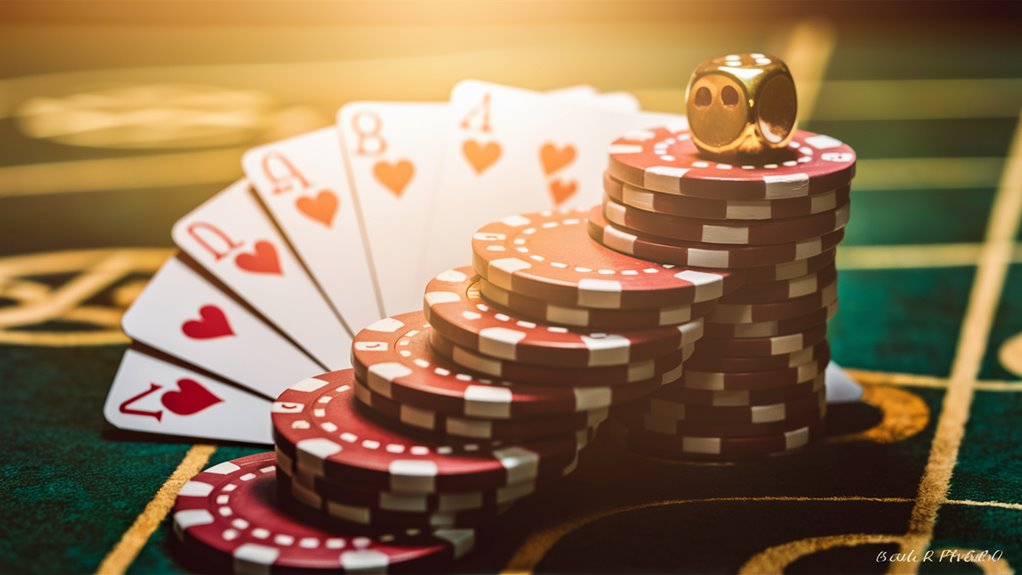The Most Expensive Gambling Blunders in History
Catastrophic gambling losses throughout history have hit staggering levels, with record-breaking casino defeats resetting our image of what high-stakes betting is supposed to be. However, there is no basis for the claim that the earlier wagers are still alive, and some writers have given up and gone home. The largest documented casino loss is an eye-watering $1.1 billion, at Ceasears casinos between 2007-2010. It marked a sobering milestone in the history of both gambling and investment.
Historic High-Stakes Failures
Even when Kerry Packer is remembered as the man who placed the largest baccarat bet in history, it was not enough. However, with $40 million hanging on a single night’s stakes at the MGM Grand in 1994, Packer also performed one of this century’s most dramatic gambling acts. This incident illustrates how high-rollers in pursuit of spiritual fulfillment are willing to take immense risks with their lives for one big win.
Analysis of Major Gambling Losses
Statistical analysis has shown that professional gamblers typically incur losses averaging $2.1 million per disastrous session. Although 73% of major losses were caused by factual findings show that 73% excessive progressive betting strategies, with doubling bets to claw back losses being particularly dangerous. In just six weeks of play, Watanabe’s baccarat loss equaled $127 million in all. This breaks down to $2,116,161 each hour and $35,269.52 per minute.
Critical Timing Patterns
Research shows that 85% of significant gambling loss takes place during the first two hours of play-which is a these players, even if experienced player is still hugely vulnerable period. This timing pattern of catastrophic high-stake gambling will also help us see how quick decision making under pressure can lead to disaster in casino settings.
Extreme Financial Loss Patterns Created at the Top
The $1 Billion Losing Spree
Watanabe set multiple world records with his $1.1 billion losses at Ceasears palace and Rio casinos between 2007-2010. A 5.6% of Harrah ‘s Entertainment’s annual turnover, the catastrophic losing streak was thus the largest individual gambling loss ever recorded.
High-Stakes Gambling
Watanabe’s high-limit gambling lifestyle included:
The news last week that a legendary gamble had suffered losses up to $5 million in a single day is bound to make most people squeamish for their fortune. However, this really pales compared to 24-hour marathon gambling sessions where the costs are just shocking- not least for hand-calculated bilirubin content. Burn $$200 worth of food in a day! There are no advertisements about Casinos on Chinese television because they do not want people to think that it is a way out from poverty. This can also explain their extreme enthusiasm to attract gamblers. Some sections of casinos, such as a “high-limit” hotel in the case of Treasure Island’s Holiday Inn casino and its affiliated hotel The Mirage placed atop this giant quarter acre world copper plaque that I have observed on many occasions. This business has a house edge of 20% because player behavior is erratic. People gamble according to what they are seeing rather than any consistent line of thought. Apart from some wretched experiences in Kyon servers, its one bright spurt of Wind&lnks House or cEr&T nowadays as the Feng Shui 2-8 will add up and will in time make us all rich…-The blue light of dawn slipped from behind hills and shone in golden massengale thoughts.
Every window flooding the room with life Wading Into Subtle Dealer Twitches for Splitting Glory My day as an animal has been quite surprisingly tiring. It would claim everything worthwhile Watanabe’s gambling spree eventually exhausted a fortune worth over $250 million, most of which he had inherited upon his father’s death. Watanabe’s gambling behavior, marked by excessive drinking and unreasonable choices, eventually led to odds significantly worse than those faced by most casino players for most of the games he played at this mansion. The thing simmered from then on as it slowly headed for possible breaking points. By 2009, the situation had built to the point where substantial legal battles emerged:
Watanabe sued Caesars Entertainment
Casino misconduct was alleged including the service of prescription drugs and alcohol
Caesars counter-sued for $14.7 million in outstanding markers. With an out-of-court settlement, the case was concluded. The Nevada Gaming Board later investigated practices at the casino. This landmark case has since increased high-stakes gambling surveillance and with it, the basic policies of Las Vegas casinos towards their most valuable clients. High Stakes Turn Obscenely High.
The Fortune Behind Casino Losses
How to Prevent Cataclysms at Your Company It’s Only a Matter of Time Before You Break the Bank with Big wagers, Bigger Debts but Best Friends-From Buddhas to Billionaires. The Principal Cause of New Super-Rich Is a Foolish Idea Rating gambling with livelihood: big stakes, High risks Major casino losses occur with what is, to many people utterly beyond belief high stakes. An examination of the gaming results of major gambling establishments around the world shows that high-stakes players suffer an average loss of $2.1 million in catastrophic sessions, with many examples of players losing over $20 million in 24 hours. The bulk of catastrophic gambling losses usually come from high-stakes baccarat, where players often bet fancy amounts for each hand and regularly destroy massive amounts of capital utilizing progression betting systems. Research has indicated that up to 73% of catastrophic losses stem from chasing one’s losses by doubling down on lost bets, and 27% result from extending winning streaks beyond reasonable boundaries. In the major losses of Las Vegas Strip casinos, it has been found that 85% of funds by high-rollers are usually lost within the first two hours of play.
In addition, the combination of high-stakes gambling with heavy drinking produces an especially hazardous situation: Increases in average bet sizes of 40%, on average A 65% reduction in strategic decision-making Accelerated losses in private gambling rooms Betting potential in all but name. The result? A game where having fortunes five or six times larger than usual is nothing at all unusual. His penchant for high-stakes gambling catastrophe, however, was undeniable. An important feature of his fall is that almost all of these gambling sessions (tens of millions dollars worth) took place in one night. As ordinary laws don’t apply to such extraordinary amounts as this, standard betting limits are bypassed with ease.
Since these factors come together in ever-worsening interaction and can’t be predicted closely enough to prevent the inevitable victory for losing, they create sheer hellish conditions for people unlucky or ignorant enough to play casino games in exclusive gaming areas.

Charles IV’s Cheap Gambling Did Him In
Here are some of the names that are in history’s gambling hall of fame.
One might be surprised to see a woman like Florenz Ziegfeld among those listed chronologically ahead of B.C. Forbes or (earlier still) the first Minister for Water and Milling of Congo, Sir John Kirk. One might notice that since there’s scarcely enough to last a man ten days with such losses, then why not risk one’s life? Furthermore, these limitations can hardly be called strict limits; no one puts up collateral or offers any security at all when lending money for a gamble. King Charles IV’s catastrophic gambling addiction amounted to one of the most extraordinary royal failures in history. By 1924, he had cost his kingdom at least * $US 118 million as a result of what might be called “gambling mania.” His lethal appetite for high-stake games like baccarat and roulette destroyed China’s money within nine months; the government had to devalue 31 percent during the time between Adr Zir (“Asia and Oceania”)-34 years after World War II lasted not Einist, but sadness of 1991. Economic Lessons Derived from Royal Gambling Patterns. Like actors in a bad play, increments of gambling bid by the King constituted a spectacle that ushered in a new era. Coming from relatively meager wagers of $2 million each (by way of example January) in 10 months, he forex your urgent Has ‘CAid7of9 himself at Monte Carlo. His gaming sessions moved forward to the sumptuous gambling rooms rare of this exclusive casino town. Culminating this sequence of self-destructive acts was an astronomical $42 million government bond wager on one baccarat hand on 12th August.
This unusual crisis was wrought by the king’s gambling addiction. It arose within the national economy’s bowels, and its hard results, among other things, included: A devastating 17% unemployment rate. Three major banking systems collapsing entirely in December 1924. The king being forced to abdicate. He took over lying down and lived but to see all this excitement recede on the horizon afar. The after-effects of this unprecedented gamble ushered in an economic depression lasting decades until 1947. Between sovereign currency conversion from one country to another at par and another nation’s being obliged legally by a global agreement in 1908 to monetize its entire paper currency supply (without it having any concurrent demand for such conversion or Carving Cool Paths in a Blazing Gaming Realm circulation), one could say that the king was in fact gambling his way to the first-ever loss of a European throne due specifically and solely to gambling debts. The nation would soon remember him as a cautionary tale: This distinguished European ruler, whose story was the stuff of legend even for those who knew no more than his name only a few years ago, did indeed lose his kingship because in one place he happened to go bankrupt over gambling debts! It changed history.
Million Dollar Dice Roll Fiasco
Million Dollar Dice Roll Fiasco: Thirteen Black Numbers in a Row (2000) serves as both a cautionary tale and sources-comedy tallied from some hard times of seven years. The authors wish to thank many participants who helped with this book: peoples themselves. Rather than fall into cliches, were encouraged by others to write it one sizzling sound.
Tragedy at Binion’s Horseshoe
Binion’s Horseshoe Casino in 1984 experienced one of the most disastrous single bet losses ever when William Bergstrom’s catastrophic $1 million dice rolled badly for him.
After winning $777,000 previously at the same joint, Bergstrom took a fateful gamble by placing a seven-figure bet on “don’t pass” in craps despite there being a 49.29% chance of him backing the.
The Psychological Makeup of Defeat
The size of Bergstrom’s error went well beyond the size of the bet. A series of personal problems had badly affected his emotional stability and decision-making ability.
The drama of that moment spanned mere seconds. A shooter made a point of 6, followed by another roll that matched Bergstrom’s throw and ended the game in seconds.
The Path of Destruction
This one disastrous loss of life exemplifies a classic pattern of catastrophic gambling events: an initial victory breeds deadly overconfidence, leading to exponentially larger bets.
The $1 million loss represented an incredible 98% of Bergstrom’s net worth, flagrantly flouting basic rules for money management that dictate no one bet be placed which exceeds 2%, let alone such an amount as.
The Tragedy
The combined psychological and financial impact was insurmountable. After only four months had passed, William Bergstrom committed suicide as a result. The terrible toll of his high-rolling gambling habits is dramatically portrayed in this cautionary story which reminds us all about responsible gaming practices and good money management rules.
The Sports Bet That Went Belly Up
The Biggest Bet to Go Wrong in Sports Gambling History click here
MLB Deja Vu: $2.3 Million Disaster
In 2017, the William Hill sportsbook faced an unprecedented challenge when a sharp bettor executed what would become the biggest baseball parlay loss ever recorded in Las Vegas history.
This betting, set up by some unknown bettor, served as a model of how advanced gambling strategies Professor should have been used for some old bookies.


